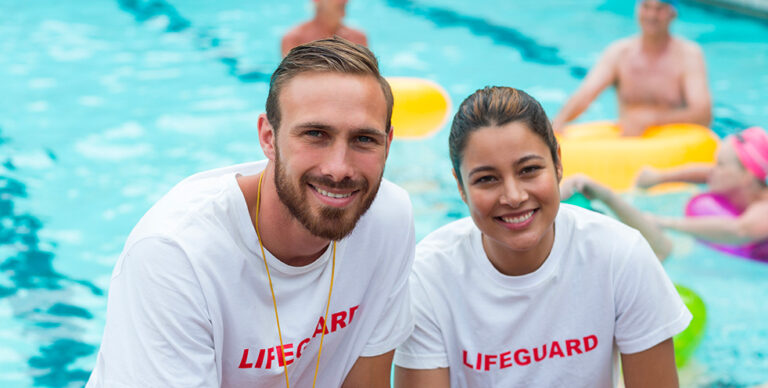
Contents
Are you passionate about water safety and interested in becoming a lifeguard? Whether you’re looking to start a fulfilling career or simply want to contribute to your community, getting lifeguard certification is the first step towards making a difference. In this comprehensive guide, we’ll walk you through the process of obtaining lifeguard certification near you, from researching programs to passing the certification exam.
Introduction to Lifeguard Certification
Lifeguard certification is essential for anyone looking to work as a lifeguard at pools, beaches, or other aquatic facilities. Not only does it provide you with the necessary skills to respond to emergencies effectively, but it also demonstrates your commitment to ensuring the safety of others. Before diving into the certification process, let’s explore why lifeguard certification is so important and what basic requirements you’ll need to meet.
Researching Nearby Certification Programs
The first step in getting lifeguard certification near me is to research available programs in your area. Fortunately, there are many resources available to help you find certification courses near you. You can start by searching online for local training centers or checking with your community center or local pools. Additionally, reaching out to experienced lifeguards for recommendations can provide valuable insights into the best certification programs available.
Understanding Course Structure and Content
Once you’ve identified potential certification programs, it’s essential to understand the structure and content of the courses they offer. Lifeguard certification courses typically cover a range of topics, including CPR and first aid training, water rescue techniques, and legal responsibilities and regulations. By familiarizing yourself with the course curriculum, you can better prepare yourself for the challenges ahead.
Choosing the Right Certification Program
With so many certification programs available, choosing the right one can be overwhelming. When evaluating different programs, consider factors such as accreditation and recognition, instructor qualifications, and class schedule and duration. Opting for a reputable certification program with experienced instructors and a flexible schedule can ensure you receive high-quality training that fits your needs.
Preparing for the Certification Course
Before enrolling in a lifeguard certification course, it’s essential to prepare yourself physically and mentally for the challenges ahead. Lifeguarding requires a certain level of physical fitness, so be sure to engage in regular exercise and maintain a healthy lifestyle. Additionally, gather any necessary equipment and attire you’ll need for the course and mentally prepare yourself for the rigorous training ahead.
Enrolling in the Certification Course
Once you’re ready, it’s time to enroll in a lifeguard certification course. The enrollment process typically involves completing a registration form, selecting a payment option, and paying any applicable fees. After enrolling, you’ll receive confirmation of your enrollment along with details about the course schedule and location.
Attending and Participating in Classes
During the certification course, you’ll attend both classroom sessions and practical training in the water. Classroom sessions will cover theoretical knowledge, while practical training will focus on developing your lifeguarding skills. Be sure to actively participate in all classes and take advantage of any interactive learning activities offered to enhance your learning experience.
Passing the Certification Exam
At the end of the certification course, you’ll need to pass a final exam to obtain your lifeguard certification. The exam typically consists of a written test on theoretical knowledge and a practical assessment of your lifeguarding skills. Be sure to study diligently and practice your skills regularly to ensure you’re well-prepared for the exam.
Receiving Certification and Documentation
Upon successfully passing the certification exam, you’ll receive your lifeguard certification along with any necessary documentation. Your certification will indicate that you’ve completed the required training and are qualified to work as a lifeguard. Be sure to keep your certification and other documents up to date to remain eligible for employment opportunities.
Seeking Employment Opportunities
With your lifeguard certification in hand, you’ll be ready to start exploring employment opportunities in your area. Many local pools, beaches, and other aquatic facilities hire certified lifeguards to ensure the safety of their patrons. Be proactive in seeking out job openings, and don’t hesitate to reach out to potential employers to inquire about available positions.
Continuing Education and Skill Development
Lifeguarding is a dynamic field that requires ongoing education and skill development to stay current with the latest safety protocols and techniques. Consider pursuing advanced lifeguard training courses or specialized certifications to expand your knowledge and enhance your skills. Additionally, stay informed about industry trends and developments to remain a competent and effective lifeguard.
Networking with Fellow Lifeguards
Networking with fellow lifeguards can be invaluable for both professional development and personal growth. Consider joining professional associations or attending conferences and workshops to connect with other lifeguards and share experiences and best practices. Building a strong network of peers can provide support and mentorship as you progress in your lifeguarding career.